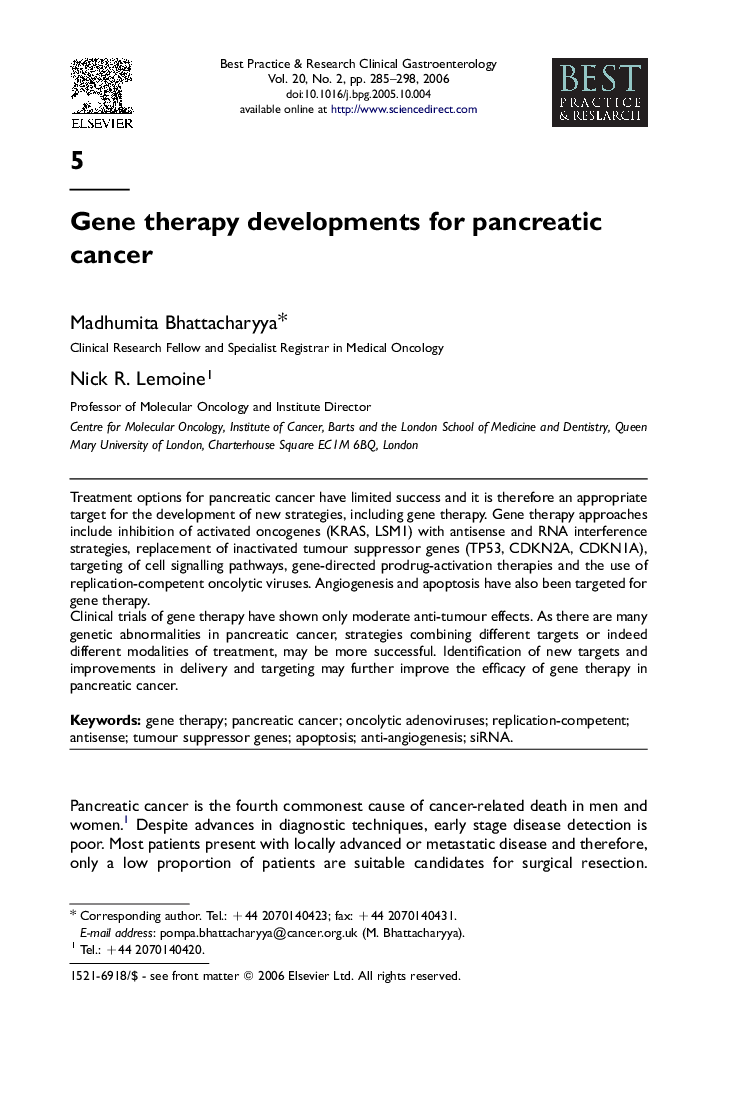| Article ID | Journal | Published Year | Pages | File Type |
|---|---|---|---|---|
| 3254871 | Best Practice & Research Clinical Gastroenterology | 2006 | 14 Pages |
Treatment options for pancreatic cancer have limited success and it is therefore an appropriate target for the development of new strategies, including gene therapy. Gene therapy approaches include inhibition of activated oncogenes (KRAS, LSM1) with antisense and RNA interference strategies, replacement of inactivated tumour suppressor genes (TP53, CDKN2A, CDKN1A), targeting of cell signalling pathways, gene-directed prodrug-activation therapies and the use of replication-competent oncolytic viruses. Angiogenesis and apoptosis have also been targeted for gene therapy.Clinical trials of gene therapy have shown only moderate anti-tumour effects. As there are many genetic abnormalities in pancreatic cancer, strategies combining different targets or indeed different modalities of treatment, may be more successful. Identification of new targets and improvements in delivery and targeting may further improve the efficacy of gene therapy in pancreatic cancer.
